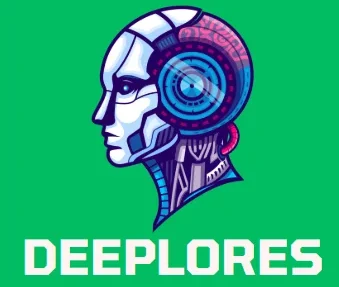What is an Example of Using Quantum Computing for Sustainable Practices?
Quantum computing, an exciting frontier in technology, is shaping the future in countless ways. One of its most promising avenues? Sustainable solutions that could revolutionize how we approach environmental challenges.
Our comprehensive exploration of ‘What is an Example of Using Quantum Computing for Sustainable Practices?’ – a topic that holds great significance in today’s world. Join us as we delve deep into its various aspects and shed light on its importance. Let’s get started!
How is Quantum Computing Being Used for Sustainable Development?

Quantum computing has opened up a world of opportunities, with algorithms that process information at unprecedented speeds. This, in turn, facilitates optimization problems, such as energy consumption and waste reduction, providing innovative solutions for sustainable development.
Environmental Benefits of Quantum Computing Applications

Quantum-enhanced sustainable technologies ensure that we’re making the most of our resources. For instance, quantum simulations can improve materials used in solar cells, leading to more efficient energy conversion. Such advancements are monumental in our fight against climate change.
Quantum Algorithms for Renewable Energy Solutions
Researchers are keenly exploring quantum algorithms to enhance renewable energy systems. By optimizing grid operations, we can distribute green energy more effectively, ensuring homes and businesses always have power without relying on fossil fuels.
Quantum Computing and Carbon Footprint Reduction
With quantum-inspired solutions for sustainable practices, industries can dramatically reduce their carbon footprints. By streamlining supply chains and resource allocation, we can lessen emissions and ensure a cleaner, greener planet.
Quantum Computing Contributions to Ecological Balance
Sustainability is not just about energy. It’s about the entire ecosystem. Quantum computing plays a role in water management, conservation efforts, and even sustainable agriculture, ensuring that we create an ecological balance.
Green Computing with Quantum Technology
Eco-conscious quantum computing applications provide an avenue to design better, energy-efficient computers and data centers, drastically cutting down their environmental impact.
Quantum Algorithms Relevant to Sustainable Agriculture
In agriculture, quantum algorithms can optimize irrigation, predict crop yields, and manage pests. By harnessing this potential, we can produce more food using fewer resources.
Quantum-Enhanced Simulations for Studying Climate Change
Understanding climate change is paramount. Quantum-enhanced simulations provide deeper insights into climate models, allowing scientists to predict and mitigate adverse effects more accurately.
Quantum Computing’s Role in Water Management
Water is a precious resource. Quantum computing can help in its efficient distribution, wastewater treatment, and even in predicting rainfall patterns, ensuring that water scarcity becomes a thing of the past.
Potential Applications of Quantum Computing in Green Technologies
From optimizing electric vehicle batteries to creating more efficient lighting systems, the realm of green computing with quantum technology is vast, offering countless opportunities for innovation.
Quantum Computing and the United Nations Sustainable Development Goals
The UN’s Sustainable Development Goals (SDGs) aim for a better future. Quantum computing directly ties into several of these goals, notably in areas of clean water, affordable and clean energy, and climate action.
Quantum Computing in Waste Reduction and Recycling
Can Quantum-Inspired Solutions Boost Recycling Efforts?
One of the significant environmental challenges today is waste management. Quantum computing’s prowess in problem-solving can be a game-changer in this sector. By analyzing complex waste-sorting algorithms, quantum computers can optimize recycling processes, maximizing output and reducing landfills.
Quantum Algorithms and Circular Economy Models
The circular economy is all about making sure that products and materials maintain their value for as long as possible. Quantum algorithms can play a role in tracking and managing resources in real-time. Whether it’s ensuring a product is recycled or finding the most efficient route for a reused product, quantum computing has the potential to drive this sustainable economic model.
Harnessing Quantum Computing in the Design of Sustainable Materials
Eco-friendly innovation through quantum computing isn’t just a concept – it’s becoming a reality. Quantum simulations enable researchers to discover new materials and refine existing ones, ensuring they’re both sustainable and efficient. Whether it’s lightweight materials for transportation or bio-degradable plastics, quantum-enhanced research is paving the way.
Quantum Computing for Resource Efficiency in Industries
Industries across the board, from manufacturing to agriculture, stand to benefit from quantum computing. Quantum-enhanced sustainable technologies can optimize operations, reduce resource waste, and improve productivity. For example, in mining, quantum algorithms can predict the best areas to explore, reducing environmental disruption and maximizing resource extraction.
How Quantum Computing Ties Into Green Transportation
Transport is a significant contributor to global emissions. Quantum computing can play a pivotal role in making transport green. From optimizing traffic flows in real-time to improving electric vehicle battery technology, quantum solutions have the potential to revolutionize transportation systems globally.
Quantum Solutions for Cleaner Air and Water
Air and water quality are paramount for human health and biodiversity. Quantum algorithms can assist in modeling pollution patterns, optimizing filtration systems, and predicting potential contamination sources, ensuring we can act proactively to maintain the quality of these essential resources.
FAQs
Are there any startups working on quantum computing for sustainable innovation?
Yes, numerous startups are focusing on sustainable solutions using quantum computing. They’re addressing challenges in energy, agriculture, and conservation.
Can quantum computing optimize supply chains for ecological balance?
Absolutely. Quantum algorithms can predict supply chain disruptions, ensure resource-efficient production, and reduce waste.
How does quantum computing improve the efficiency of renewable energy grids?
By analyzing vast amounts of data quickly, quantum computing can optimize energy distribution, storage, and consumption, leading to more resilient and efficient grids.
What research is being done on quantum computing’s role in water management?
Research focuses on optimizing water distribution, wastewater treatment, and using quantum models to predict rainfall and drought patterns.
How can quantum computing enhance eco-tourism?
Quantum computing can optimize travel routes, ensure efficient energy use in eco-resorts, and predict the environmental impact of tourism activities, making eco-tourism more sustainable.
Are there any significant breakthroughs in quantum computing for reforestation efforts?
Quantum models are being used to study soil quality, predict growth patterns, and optimize planting strategies to ensure faster and healthier growth of forests.
Can quantum computing help in the preservation of endangered species?
Yes, by analyzing vast amounts of data on migration patterns, habitat needs, and threats, quantum algorithms can inform strategies to protect and preserve endangered species more effectively.
Are quantum computers themselves sustainable?
Research is ongoing to make quantum computers more energy-efficient. As the technology matures, the focus is on ensuring that the very machines that help in sustainability are themselves sustainable.
Also Read: Which Technology is Making Quantum Computing Easier to Access and Adopt?
Final Thoughts
The fusion of quantum computing and sustainable practices has opened up a universe of possibilities. As we stand at the crossroads of technology and sustainability, quantum computing is not just an ally – it’s our compass, directing us towards a brighter, greener future.
To sum it up, this article has delved into the intricacies of “What is an Example of Using Quantum Computing for Sustainable Practices?” leaving no stone unturned and empowering you to make informed decisions moving forward.







